Are you traveling to Croatia in 2024 and have questions about safety? Well, it is much like planning a trip to any other country; there is not much to worry about. My firsthand experience, coupled with ideas and tips from my family and friends who, like me, live in Croatia, is included in this travel guide.
I will show you that Croatia is a safe country, but before you visit Croatia, there are a few things to know about safety in Croatia.
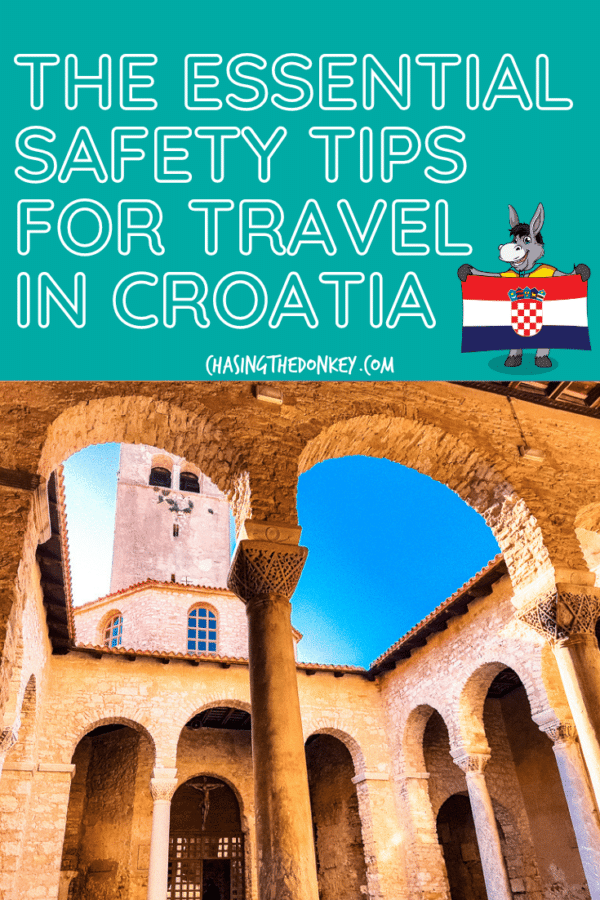
While no place on Earth is entirely devoid of risk, Croatia continues to be one of the safer travel spots, known for its low crime rates and welcoming atmosphere.
It’s not without its share of concerns to keep in mind, such as petty theft and scams that target tourists, but being aware and taking reasonable precautions go a long way in ensuring a safe visit.
Navigating through Croatia’s diverse regions, from its serene coastline to the bustling streets of Zagreb, you’ll find a consistent theme—Croatians generally enjoy a peaceful life, and visitors are welcomed warmly.
Transportation within the country is abundant and reliable (except for trains). While it’s always wise to stay alert, especially when driving or using public transport, it’s comforting to know that services like Uber are available and considered safe.
Outdoor adventures, such as hiking and sailing, are immensely popular and well-supported with safety measures for travelers keen to explore Croatia’s natural beauty. In the rare event of an emergency, Croatia’s support systems for travelers are dependable, with the necessary resources for assistance readily available.
- Croatia maintains a reputation as a safe destination with low crime rates
- Reasonable precautions should be taken, particularly against petty theft and common scams
- Reliable transportation and effective emergency services contribute to travel safety
Skip Ahead To My Advice Here!
Is Croatia Safe To Visit?
When planning a trip to Croatia, safety is a top priority for many travelers. I’m going to give you the scoop on what to expect from a safety standpoint and some travel advice.
Safety Overview For Travelers
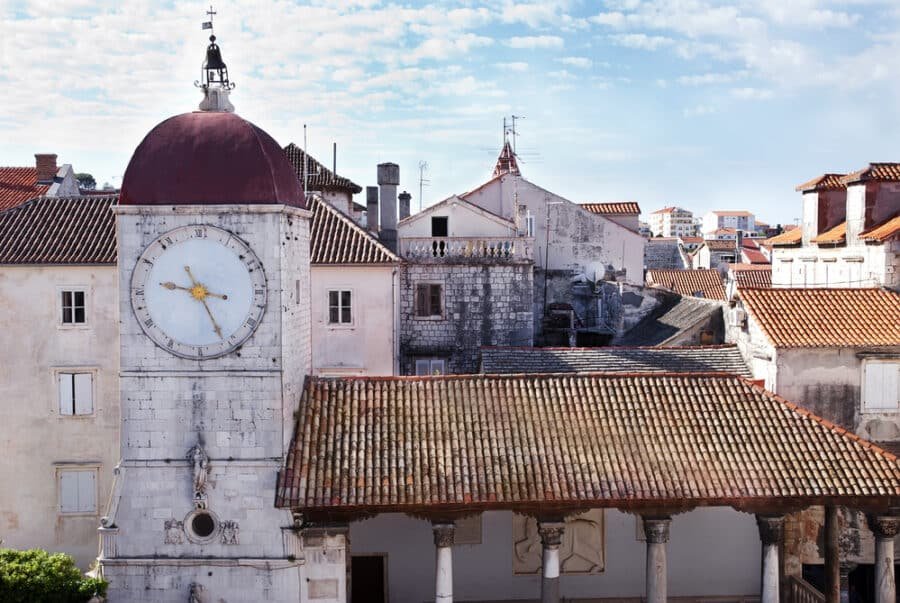
Croatia is known to be a safe destination for tourists. I’ve found that violent crime is relatively uncommon. But it’s important to be informed about possible concerns.
Petty Theft
Like in many tourist hotspots, keeping an eye on your personal belongings is important to prevent petty theft, especially in crowded areas where your backpacks and open bags are unsafe near those pesky pickpocketers.
Natural Weather
Be aware of weather patterns when scheduling your visit, as we can have some very strong hurricane-like winds known as the “Bura,” particularly along the Adriatic coast of Croatia. It is a cold, dry wind that comes from the northeast and can be very strong and sudden, causing challenging conditions, especially during the winter and early spring months.
We also have the “Jugo” wind. Unlike the Bura, the Jugo is a warm, moist wind coming from the southeast, originating from the Sahara Desert. It brings with it cloudy weather, rain, and sometimes storms, significantly impacting sea conditions that can prevent ferry and boat travel on the Adriatic Sea.
Travel Advisories & Safety Concerns
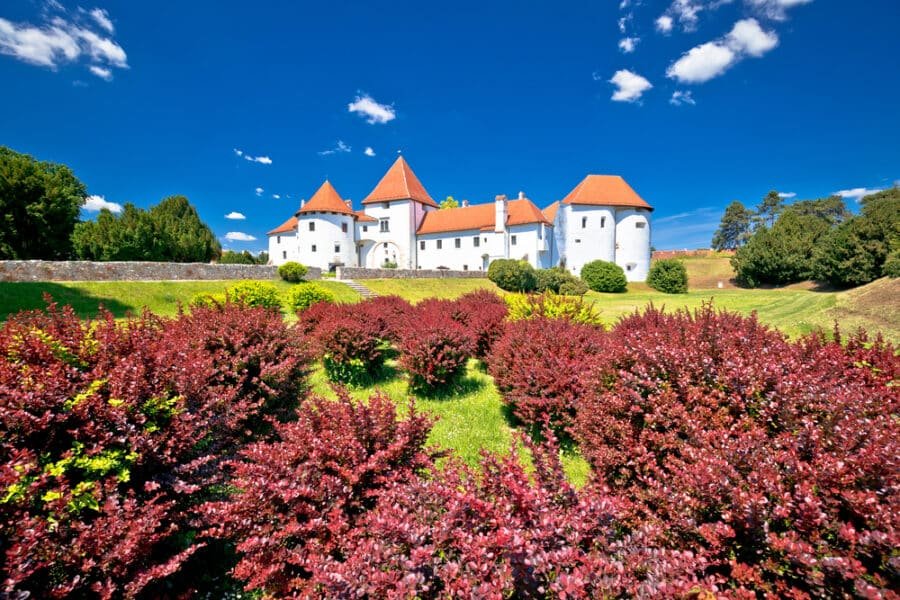
Staying updated with travel advice is a must before visiting any country, Croatia included.
Current Travel Advisory And Potential Risks
For the current travel advisory ratings for Croatia from the USA, UK, Canada, Australia, and New Zealand, I recommend checking their respective government travel advisory websites:
- U.S. Department of State – Croatia Travel Advisory
- U.K. (Foreign, Commonwealth & Development Office – FCDO Travel Advice for Croatia):
U.K. Government Travel Advice for Croatia - Canada (Government of Canada – Travel Advice and Advisories for Croatia):
Government of Canada – Travel Advice for Croatia - Australia (Smartraveller – The Australian Government’s travel advisory for Croatia):
Australian Government – Smartraveller Croatia - New Zealand (SafeTravel – Official advice for New Zealanders living and traveling overseas for Croatia):
New Zealand Government – SafeTravel Advice for Croatia
While general travel is considered safe, always check for any specific regional issues like floods. Forest fires are common in the summer, and I like to read the local news here: www.index.hr to know what is going on. With the help of Google Translate, they always keep me up to date for all parts of Croatia.
General Precautions For Traveling In Croatia
As a seasoned traveler in Croatia (next year will be 25!), I know that staying abreast of health, local laws, and customs is key to a memorable trip. Here are some specific tips to help keep your Croatian adventure safe and enjoyable.
Health & Medical Advice
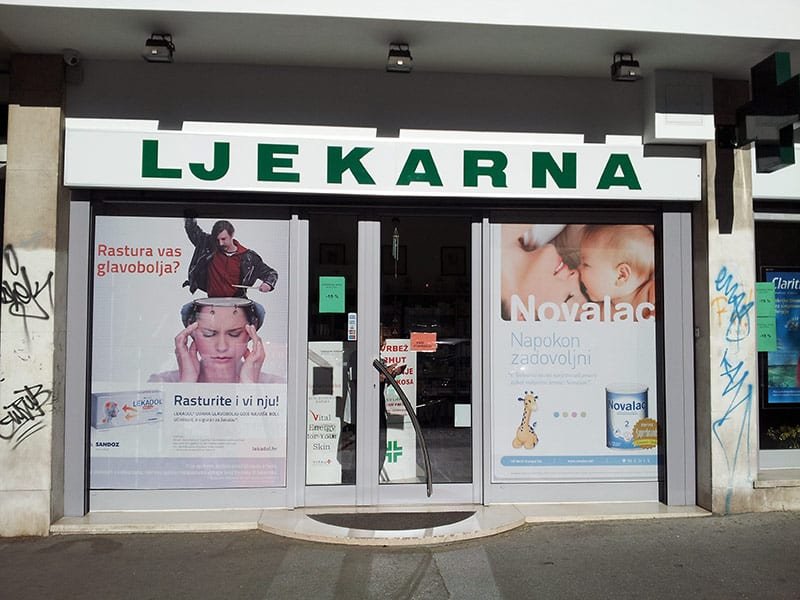
Vaccinations
No special vaccinations are necessary to enter Croatia.
COVID-19
Masks and vaccination certificates are no longer in use at all.
Medical Access & Travel Health Insurance
Croatian healthcare facilities are well-equipped, especially in cities and tourist areas. But you do need to travel with valid health insurance? Yes, get travel insurance. If you are from a non-EU country, you will need to pay for healthcare services upfront and seek reimbursement later.
Why adequate travel health insurance is essential in Croatia, you might ask. Well, if you need something like an MRI, the wait times are huge, so you’d need to go privately for that – and then your insurance will foot the bill.
Pharmacies
They are easily accessible in cities, and pharmacists, in my experience, speak enough English – or are fluent and can help guide you to the right medicine that you need.
Emergency Numbers
The number for emergency services in Croatia is 112
Local Laws And Customs
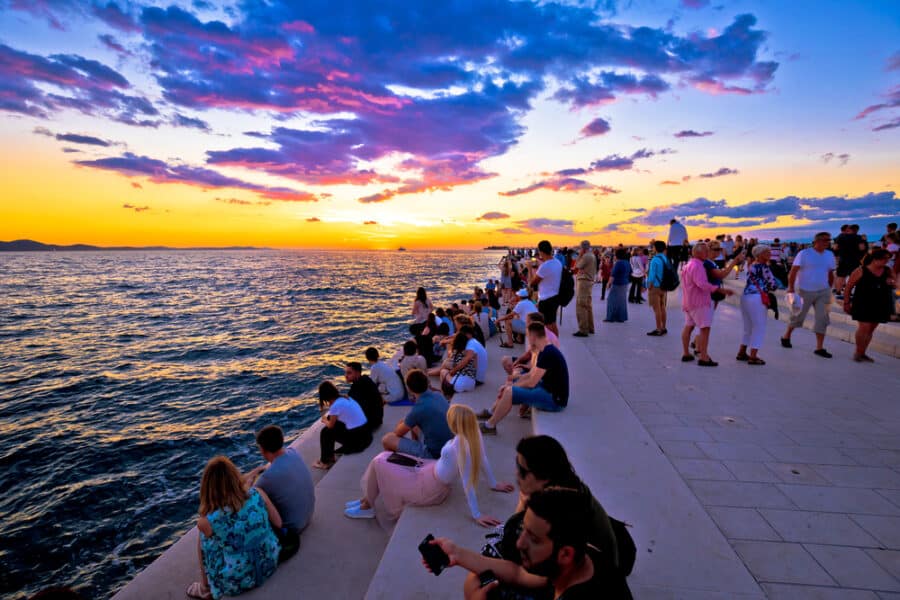
Behavior & Dress
While Croatia is quite liberal, it’s a good idea to be respectful of local customs. Dress appropriately when visiting religious sites, and always behave decently in public areas.
In popular Croatian tourist destinations like Split and Dubrovnik, there have been new rules implemented regarding public attire and behavior.
For instance, in Split, wearing a bikini or being shirtless off the beach will result in a fine. This is part of a broader effort to maintain public order and decency, particularly in areas with cultural and historical significance. A fine is applicable to those who consume alcohol in public places. There are also fines for other violations, such as littering or causing disturbances.
Similarly, Dubrovnik has established rules against wearing swimwear or being topless in the historic Old City, with fines imposed for violators. In addition to these dress code regulations, tourists should be aware of other local laws to avoid hefty fines. For example, actions considered disturbances to public order, such as visible drunkenness, will also attract fines.
The cost of fines has increased a lot over the year; when they announce the fine amounts for 2024, I’ll add them here but know they are several hundred euros per person per offense.
These regulations are in place to preserve cultural integrity and public order in these historic cities, and tourists are advised to adhere to them to avoid fines and legal complications.
Political Demonstrations
I prefer to steer clear of political rallies and demonstrations, as they can be unpredictable, and I suggest you do the same
Secure your valuables
Use hotel safes and keep a minimal amount of cash on you—limiting it to around €250 is more than enough. I have found
Attention in crowded places & pickpocketing
Petty crimes like pickpocketing can happen, particularly in tourist hotspots. Stay vigilant in crowded areas. Keeping your wallet in a secure, zipped pocket or an anti-theft bag is a smart precaution.
Brands We Use And Trust
Crime Rate And Safety By Region
When considering a trip to Croatia, safety is as regional as the destinations themselves. Different areas display varying crime rates, but overall, Croatia is a notably safe destination.
Dubrovnik And The Adriatic Coast
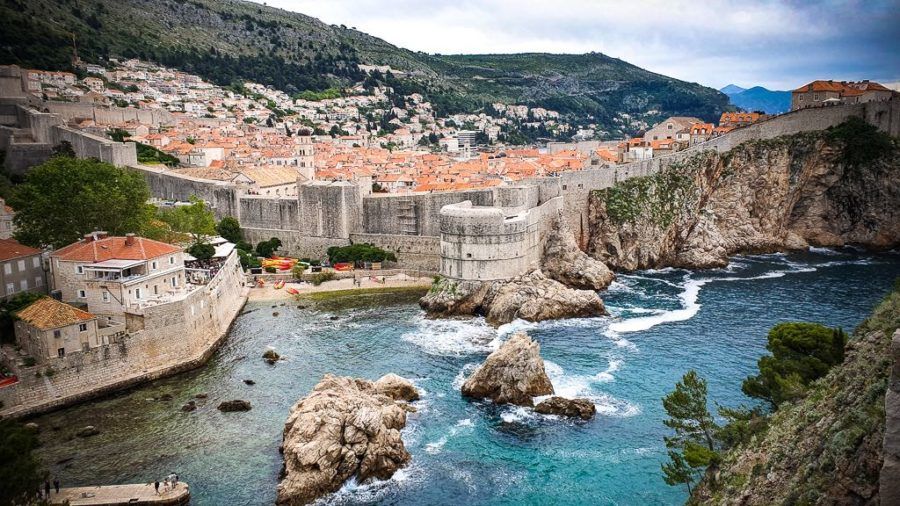
Dubrovnik, the jewel of the Adriatic, is a prime example of Croatia’s overall safety for travelers. As a popular tourist destination, it boasts a low crime rate, especially for serious crimes. Petty theft can occur, particularly in crowded tourist spots, so keeping an eye on personal belongings is smart.
- Safety Index: Dubrovnik has a high safety index, indicating fewer instances of crime
- Crime Data: minor crimes like pickpocketing are the most common concern
If you’re in Dubrovnik or exploring the stunning coastline, stay vigilant, especially around tourist hotspots.
Zagreb And Urban Centers
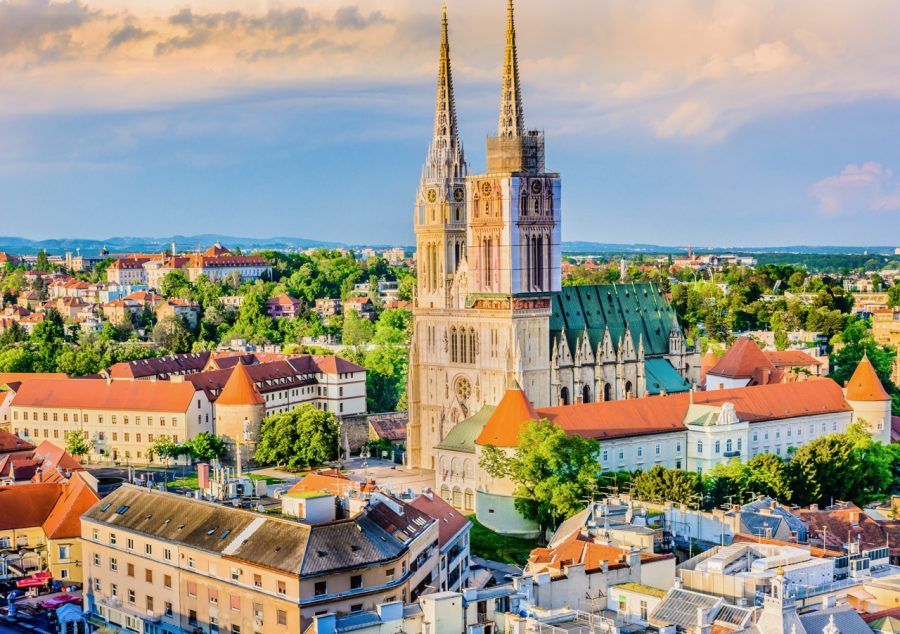
Moving inland to the bustling streets of Zagreb, Croatia’s capital, offers an urban experience with a side of safety. Like Dubrovnik, violent crime is rare. Still, I’d advise a sensible level of caution to guard against petty crimes like pickpocketing or bag snatching in busy areas.
- Police Presence: Normally visible, especially in areas with a high influx of visitors
- Safety Tips: Keep valuables out of sight and be aware of your surroundings on public transport
Zagreb’s crime rate remains low, aligning with the rest of the country’s standards for safety.
Transportation Safety In Croatia
When heading to Croatia, knowing how the transportation system works can ensure that you have a smooth and pleasant experience. Let’s talk taxis, buses, and your rental car options.
Taxis & Public Transportation
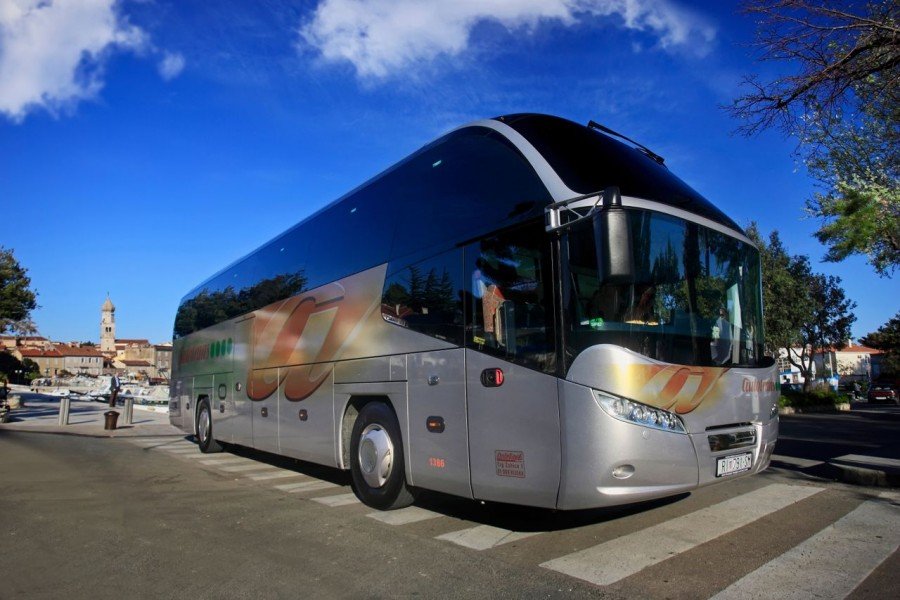
In Croatia, hailing a taxi or jumping on public transport can be a pretty hassle-free way to get around. However, let me give you a couple of tips.
Taxis
While taxis are a convenient option, especially when getting to your accommodation from the airport, I recommend using official taxi services or a reputable app to avoid overcharges. It’s not uncommon for some taxi drivers to hike prices; every year, we have horror stories of overcharging.
Instead, I suggest you use Uber in Croatia; find a guide on Croatian Uber here.
Public Transportation
Buses are reliable and a cost-efficient way to travel. They’re my go-to for longer distances when I am not driving myself. Always keep an eye on your belongings, though, as pickpockets can be a concern, especially in crowded areas.
Driving And Car Rentals

I love the freedom of driving in Croatia; it lets you explore at your own pace. Now, here’s what you need to keep in mind:
Car Rentals
Renting a car is straightforward, and you’ll find all the major rental companies here. Just make sure you’ve got a valid driving license and credit card. Driving in Croatia is very safe.
Driving Conditions & Road Safety
Croatian roads are generally in good condition. The highways (autoceste) are a breeze, with clear signage and rest stops. That said, some local roads, especially in rural or coastal regions, can be a bit narrow or winding, so take it slow and steady if you’re not used to them.
If you need roadside assistance, you can call HAK (Hrvatski Autoklub), which translates to the Croatian Automobile Club.
Schengen
With Croatia’s inclusion in the Schengen Area as of 2023, road travel between Croatia and other Schengen countries has become significantly smoother and more efficient. Border controls have been relaxed, allowing for seamless cross-border journeys and enhancing the ease of exploring the diverse landscapes and cultures of the region without the need for lengthy stops or extensive checks at border crossings.
Scams To Avoid
Traveling up and down the whole of Croatia, I’ve learned it’s crucial to be aware of certain scammers. The country is relatively safe, but like any tourist destination, it has its share of tricksters.
Tourist Scams In Crowded Tourist Areas
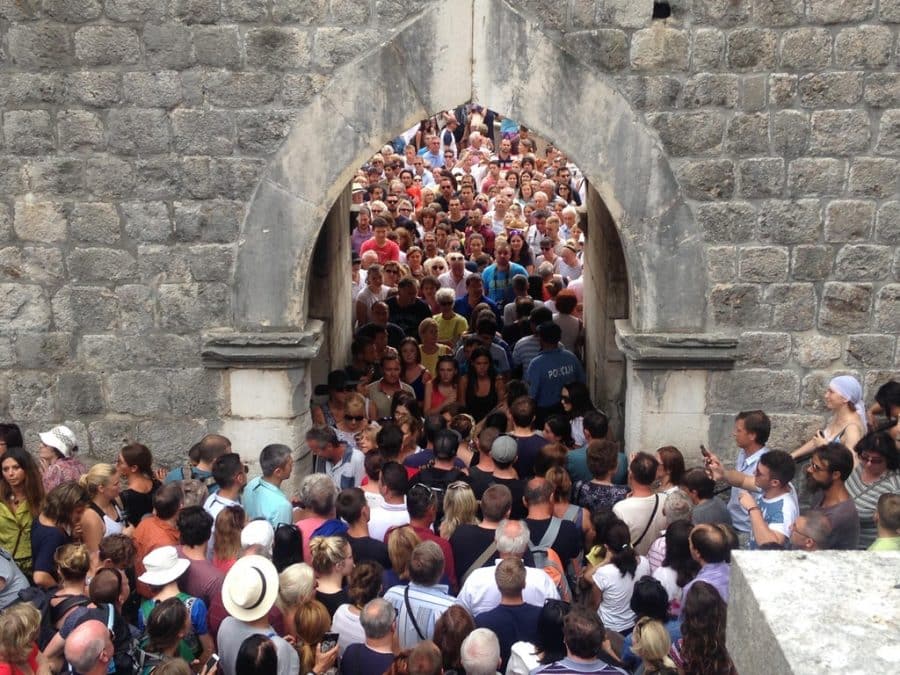
In crowded places, pickpocketing is a common scam. The thieves often work in teams; one distracts you while the other slips away with your valuables. Here’s my take on how to steer clear:
Stay Alert
Keep your belongings tight and in sight, especially in crowded areas like markets or public transport.
Use Anti-Theft Bags
Bags with locks or hidden compartments can be a deterrent.
Overcharging And Fraudulent Activities

Overcharging can happen, particularly with taxis or in some restaurants – though rare. To ensure I don’t pay more than I should, I follow these practices:
- Confirm prices: before committing to a service or a meal, I make sure to ask for the price
- Use reliable taxis: during your stay in Croatia, stick to official taxis or use ridesharing apps like Uber to agree on the fare before the ride
Outdoor And Adventure Travel Safety
When you’re traveling to Croatia, it’s essential to stay informed about outdoor conditions and safety measures. I want to make sure you get the most out of your adventure without any unwelcome surprises.
Natural Hazards & Weather Conditions
Croatia is a stunning place with a temperate climate, but like anywhere, it has its share of natural hazards. Forest fires can be common during the dry season, typically from June to September. It’s crucial to be aware of fire warnings, especially if you’re hiking or camping in wooded areas. Keep an eye on local weather reports for fire danger ratings. Regarding the weather, sudden storms are not unheard of, so pack gear for all conditions and stay vigilant about forecasts.
Landmines
Landmines were a significant concern in Croatia due to the Balkan War of the 1990s. However, extensive demining efforts have been made to clear these dangers, particularly in areas frequented by tourists and in populated regions.
While the vast majority of the country, including all popular tourist destinations, has been cleared of mines, a small number of areas, mostly in remote regions far from usual tourist paths, may still have unmarked or marked zones where landmines have not been entirely eradicated.
Outdoor Activities and Safety Standards
Croatia offers a plethora of outdoor activities, from rock climbing to sea kayaking. For each, safety standards vary, so I suggest checking if your tour operator is licensed and follows E.U. safety regulations. In case you’re going it alone, familiarize yourself with any necessary safety precautions or local regulations – it’s always better to be safe than sorry.
Given its diverse terrain, Croatia is a hotspot for adventure travel. Whether you’re white-water rafting on the rivers or exploring national parks, ensure you’re equipped with the right gear and know-how. If you’re venturing out into the wilds, consider hiring a local guide – they’ll provide valuable insights and can navigate you through the safest routes.
Emergency Situations & Support In Croatia
When traveling to Croatia, it’s essential for me to know how to handle emergencies and understand the kind of support available. This covers contacting local authorities and ensuring I have the right travel insurance.
Contacting Local Authorities
In Croatia, if I need immediate police assistance, you can dial:
- Police assistance can be reached by dialing 192
- For medical emergencies, the number is 194
- To contact the fire department, you would dial 193
- In case of an emergency at sea, the Coast Guard can be reached via 195
Additionally, for any distress or emergency situation, the Europe-wide emergency number 112 is also available in Croatia, so you can just save that number in your phone for emergencies.
For any travel-related emergencies, such as lost or stolen passports, contact your local embassy in Zagreb.
U.S. Embassy in Zagreb
- Address: Ulica Thomasa Jeffersona 2, 10010 Zagreb, Croatia
- Telephone: +385 1 661 2200
- Emergency: +385 1 661 2200
- Fax: +385 1 665 8933
- Email: ZagrebACS@state.gov
- Website: U.S. Embassy Zagreb
Australian Embassy in Zagreb
- Address: Radnička cesta 80, 10000 Zagreb, Croatia
- Telephone: +385 1 4891 200
- Fax: +385 1 4891 216
- Email: australianembassy.croatia@dfat.gov.au
- Website: Australian Embassy Croatia
Canadian Embassy in Zagreb
- Address: Prilaz Gjure Deželića 4, 10000 Zagreb, Croatia
- Telephone: +385 1 4881 200
- Fax: +385 1 4881 250
- Email: zagrb@international.gc.ca
- Website: Canadian Embassy in Croatia
- Address: Ivana Lučića 5, 10000 Zagreb, Croatia
Irish Embassy in Zagreb
- Telephone: +385 1 6312 800
- Fax: +385 1 6312 809
- Email: zagrebcroatiavisas@dfa.ie (for visa queries), zagrebembassy@dfa.ie (for other queries)
- Website: Irish Embassy in Croatia
United Kingdom Embassy in Zagreb
- Address: Ivana Lucica 4, 10 000 Zagreb, Croatia
- Telephone: (+385) 1 600 9100
- Fax: (+385) 1 600 9111
- Email: british.embassyzagreb@fcdo.gov.uk
- Website: British Embassy Zagreb
Travel Insurance & Emergency Services
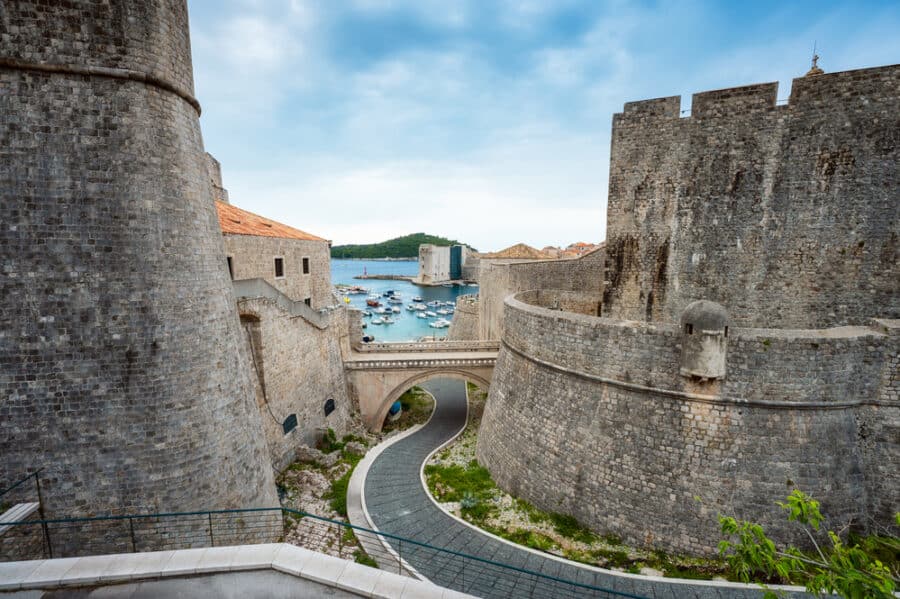
Before setting off, I make sure my travel insurance is up to snuff. Comprehensive travel insurance typically covers emergency medical expenses, trip cancellation, lost luggage, and, sometimes, unexpected evacuations. Checking the fine print on what circumstances are covered can save you a ton of hassle.
In case I need medical attention, Croatia has reputable hospitals and clinics, especially in major cities like Zagreb, Split, and Dubrovnik. For non-emergency health concerns, pharmacies are widely available and staffed with knowledgeable professionals.
Being prepared isn’t pessimistic; it’s just smart planning. Having these bases covered lets me enjoy my Croatian adventure with an extra layer of peace of mind.
Move This Adventure To Your Inbox & Get An Instant Freebie

No spam. Unsubscribe at any time.
FAQs To Know About Safety In Croatia
When it comes to traversing the alluring landscapes of Croatia, safety is naturally a prime concern. In preparing for your peaceful Croatian adventure, I’ve gathered some answers to your questions to help guide you through what to expect and whether Croatia is safe for travel.
What precautions should travelers take to stay safe from crime in Croatia?
Croatia is fairly safe when it comes to serious crime. However, as in any popular tourist destination, petty theft can occur. I recommend staying vigilant in crowded areas and keeping your belongings secure, perhaps with a money belt or a cross-body bag that zips shut.
Are there specific safety concerns for minority travelers, such as those pertaining to racial issues?
As an inclusive and welcoming country, Croatia does not present significant safety issues based on race. But like any traveler, those from minority backgrounds should be attentive to local customs and respectful of cultural norms to ensure smooth interactions.
How does Croatia stand in terms of safety from terrorism and regional conflicts?
Croatia enjoys a reputation as a peaceful country with no significant involvement in regional conflicts or substantial threat from terrorism. It’s wise to stay updated on current events but rest assured; it’s generally far away from any geopolitical tensions.
Can you give tips for solo female travelers prioritizing safety in Croatia?
Certainly! For solo female travelers, common advice includes staying in well-lit and populated areas at night, being conscious of your alcohol consumption, and using reputable transportation services. Don’t hesitate to trust your instincts; if a situation doesn’t feel right, leave.
What are the language considerations for English-speaking tourists in Croatia?
English is widely spoken, particularly within the tourism industry and younger generations. To enhance your experience, learning a few basic Croatian phrases can be favorable, and locals appreciate the effort. Don’t worry, though; language barriers aren’t a problem here.


It makes one feel quite good to know how to remain safe while discovering such a beautiful country.
Thanks for this awesome guide about safety in Croatia! Your advice and remarks are very heartening and supportive while planning my journey.
With the increasing number of tourists visiting Croatia, is the country truly safe for travelers?
Yes, Croatia is generally very safe for travelers, with low crime rates and a well-established tourism infrastructure, though it’s always wise to stay cautious in crowded areas.